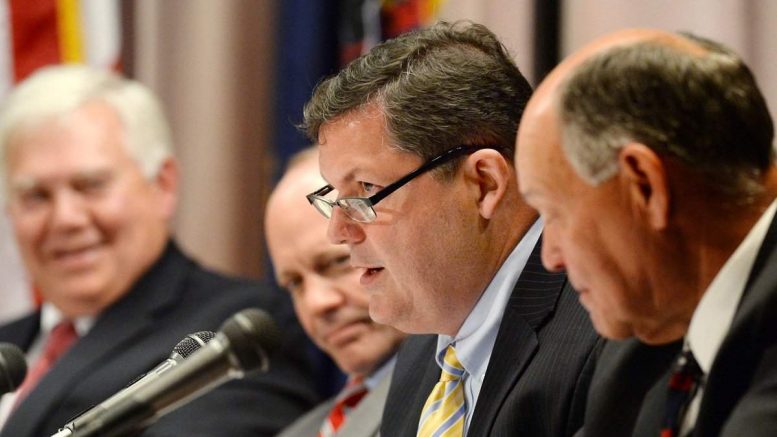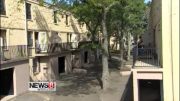The lawsuit asks the judiciary to fix the state’s “inequitable” education funding system. The court will hear oral arguments in the case Tuesday in Philadelphia.
Badams and a small contingent from Erie plan to be in the courtroom or in an overflow area provided for the public.
“I certainly am very interested in the arguments themselves, but I definitely also want to show support,” Badams said.
Erie School District has been faced with huge annual operating deficits. Officials balanced the 2016-17 schools budget with a $3.3 million increase in state basic education funding and a $4 million emergency allocation not yet received. The district anticipates an $8 million to $10 million deficit in 2017-18.
District officials already are looking at massive program cuts and the possibility of closing Erie’s four public high schools to reduce costs next school year.
The Erie School District wrote a letter supporting the lawsuit seeking education funding reform but earlier opted not to join it.
“We considered joining it and certainly were sympathetic to it, but the board at that time decided that it might put us in an adversarial position with the (state) administration,” then headed by Gov. Tom Corbett, Badams said.
The lawsuit was filed by Philadelphia-area parents, a half-dozen Pennsylvania school districts, and education and civil rights organizations claiming that “unfair”” and “arbitrary” state funding for schools violates state constitutional guarantees for equal protection and denies school districts the money needed to educate students and repair “crumbling” schools.
The lawsuit also claims “gross and irrational disparities in school funding between low-wealth and high-wealth school districts” and school funding that “bears no relationship to the actual cost of preparing students to meet state academic standards.”
Because the state provides just 34 percent of public education funding, school districts primarily rely on property tax revenues to fund operations, leaving poor districts with far less local money than wealthy districts.
In an example cited in the lawsuit, property-rich Lower Merion School District, in Montgomery County, had an equalized millage rate of 14.7 in 2012-13 and raised about $23,700 per student in local funding. Property-poor Shenandoah Valley School District, in Schuylkill County, had an equalized millage rate of 26.8 but raised only about $4,000 per student locally.
In the Erie School District, “we can’t tax or cut our way from insolvency,” Badams said in August.
Lawsuits like the one before the Pennsylvania Supreme Court this week have resulted in education funding reforms in other states. Most recently, a superior court in Connecticut on Wednesday ordered the state to revamp its education funding formula. The court determined that the state “is defaulting on its constitutional duty” to provide adequate funding for education.
The Connecticut decision also directs the state to come up with clear performance standards for elementary and secondary students, including a graduation exam; to overhaul “dysfunctional” teacher and administrator evaluations; and to address “irrational” special education funding.
Commonwealth Court judges dismissed the Pennsylvania lawsuit this spring, saying school funding is for the legislature to decide. Parents, schools and nonprofits appealed the decision to the state Supreme Court, claiming that “without judicial oversight, public education would cease to be a right, much less a fundamental one, and the legislature’s constitutional duty could be avoided without consequence, no matter how extreme the dereliction.”
School districts participating in the lawsuit are West Penn, Panther Valley, Lancaster, Greater Johnstown, Wilkes-Barre Area and Shenandoah Valley. The Pennsylvania Association of Rural and Small Schools and NAACP Pennsylvania State Conference are also participating.
The state Supreme Court could agree with the Commonwealth Court opinion that the legislature is charged with setting education funding policy, order the lower court to consider the lawsuit, or consider at least part of the lawsuit.
A judicial resolution to inequitable education funding would be welcome, partly because it would likely come faster than any legislative cure, Badams said.
“If it is a judicial ruling that essentially orders the legislature to take some action to fix the situation, my hope is that it would occur quickly. But we’re certainly not going to rely on a court decision for our 2017-18 budget,” Badams said.
Valerie Myers can be reached at 878-1913 or by email. Follow her on Twitter at twitter.com/ETNmyers.
Source: www.goerie.com




